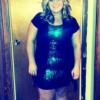Search the Community
Showing results for '"Weight gain"'.
Found 15,901 results
-
Shelly, I was not told to lose any specific amount and I had like 134 to lose to get to my goal. What you can do now is jumpstart your loss and be in better shape for surgery and after. I guess you can address this with him first. I got the impression that as long as I didn't gain (remember period Water weight gain) before ANY of my preop one on one's with him, I was in the clear. I knew my monthy was coming and it's always good for a whopping 5-7 pounds of water for a few days, and I didn't want THAT to be the cause I couldn't get surgery. LOL! I worked darn hard to put a "wider" gap between my highest wieght, and what I was at the moment. I lost 13 pounds of fat, goodbye forever before surgery...and surprisingly, I stopped snoring so my chances of having obstructive apnea became less of an issue. I was lighter on my feet, and had more energy, even at that small of a loss. Why not ride the wave of good feeling while it's high and mighty? Just the thought of having the procedure done to help me keep the weight off was super duper motivating. All of a sudden I had willpower I didn't know I had in me. My only concern was that I didn't have any co-morbids and dipping below my MO status would risk my ability to get surgery. I started at 48...and I knew that if I lost more than 35 before surgery approval, I would be risking it...as I wasn't sure which NUMBER the dang insurance company was using to guage my BMI status...the beginning, the middle or the pre-op. ((HUGS)) It's all unofficial, but nekkid weight today puts me at 90 pounds to lose instead of the 134 I started at the first of July. I am no longer morbidly obese...oh how I hated that title, it was do depressing!!! Linda
-


Weight loss with mood stabilizers... post op
rs replied to DB25rny's topic in General Weight Loss Surgery Discussions
I would venture to guess that the meds are indeed playing into this. I suggest asking your psych about switching to a different med. I have been on mood stabilizers and antidepressants for over 20 years and in those first few years I gained 100 lbs! Years later I learned that weight gain is a very common side effect of taking depakote which is what I was taking at the time. In all these years I have never been able to lose that initial 100 lbs which is what eventually led me to having sleeve surgery 8/15. I'm still bitter over it. I've been on lamictal and Zoloft for several years now without any additional weight gain from it - just weight gain from poor eating habits etc. I encourage you to talk with your Dr. This weight loss surgery journey is tough enough on its own but combined with mental health management it really is a lot to deal with. Wishing you the best. -


I want a second baby, but super scared of weight gain
jennyv83 posted a topic in Pregnancy with Weight Loss Surgery
I had gastric bypass 3 months ago, I want to wait atleast a year and 150 pounds to get pregnant again. But, last time I got pregnant I gained 70 pounds, then added an additional 40 pounds on top of that 3 years after. So, needless to say I'm super scared of that happening again, and regaining all the weight I'll lose before getting pregnant again. Anyone gain alot of weight with pregnancy, or not gain a lot of weight? Any suggestions on how to not gain a lot of weight, or to maintain their weight with pregnancy? I really want to have another baby before 40... (3 more years to go). Im so confused about this. -


my foods, what's wrong...so frustrated..
Ms skinniness replied to GlendaLee's topic in Food and Nutrition
Hey there... It looks like your doing good with the foods and your calories are really low so maybe up you calorie intake by adding some veggies that you really like. Try spicing them up for a better flavor if you don't like plain foods...... I see that you have issues with your throid and this is a good time to go see you doc or call him and have blood work up done to see if you need to either have your thyroid meds titraded up or down. This can have a negative effect on weight loss etc. Your weight gain is water weight so maybe cut back on the salty foods some. I know that I have really low bp and my doc told me to up my salt intake and I have gained 4 lbs just from the salt intake. But I'm not dizzy anymore. You can look at myfitnesspal.com page and my user name is dorrierobles2003@yahoo.com and i will add you as a friend. I have also posted something on the vet's forum about the reasons for weight gain on a low calorie diet.... It's very informative. Hope this helps and keep up the good work. I believe that a balanced approach of food does help with our cravings and stuff and I work on staying away from breads, pastas,rice, and anything that has flour. the art to this is balancing our blood sugar levels so they don't plunge to low levels...... -


Average loss with the sleeve is 60% of excess weight?!?!
OKSleever replied to Nicolanz's topic in Weight Loss Surgery Success Stories
According to whom, and how far out? My surgeon says his average is 80-90% of excess weight lost initially with a small rebound weight gain typical, but not up to 60%. Also, it's said on this board over and over again, but you decide where you fit on that. If you think the surgery is a magic bullet and you don't have to change anything except the amount you eat, you probably won't hit 100%. If you stick to plan 95% of the time and exercise regularly, you'll get a lot closer. -


New study about the long-term effectiveness of the sleeve
Andrew0929 replied to Rogofulm's topic in General Weight Loss Surgery Discussions
Perhaps this is a normal stage of the process for us, but I am having trouble dealing with even the small weight gain. My workouts are more stringent than ever, but my snacking has definitely increased. I'm snacking on Cereal, but still logging/counting calories. Carbs definitely higher, but still not too bad. I'm thinking of just stopping the cereal, though, as that seems to be a trigger for more eating .... -


New To The Gastric Sleeve Surgery Board, Looking For Other Recovery Minded People:)
donell1000 replied to MsDragonz's topic in Gastric Sleeve Surgery Forums
I am donell1000 and I have alcohol and "dry goods" free for 22 years. I sleeved 6_10_2016. What is interesting about getting sleeved is that it feels somewhat like doing a 28 day detox/rehab. Each day I learn something new about myself and I have to work my weight-loss program the same way I work my recovery. What I am trying to wrap my mind around is how someone can loose weight and then gain it back. Is it just going back to eating the wrong foods? Does the smaller sleeved stomach grow back in size? Please let me know your thoughts... How to Prevent Weight Gain After Bariatric Weight Loss Surgery -


Aussie girl sleeve Fri 28 August!
ausmith replied to smileygal's topic in Tell Your Weight Loss Surgery Story
Struggling with a small weight gain of about 3.5kg so started back with the basics today. How about you how are you coping shotochick -
I read a book (or finished reading it) on Nov 1st. It's 'How to stop eating bad sugar' by Allen Carr. Since I stopped I've kicked my sugar habit which was wreaking havoc in my life. Not huge weight gain, but there was a slide upwards. It was just the mental nastiness - the feeling of constantly losing a battle and it made me sick and I'd started getting really bad reactive hypoglycaemia. So since then: no sugar, potatoes, sweeteners, honey, syrups and no processed food made with sugar. I still eat a lot of fruit but mainly apples (loads of fibre) and tangerines. Bananas are a slight problem - I note they increase sweet cravings and give me muscle cramps, but I'm recently bereaved and so allowing myself to skate that one for now. Dried fruit is also a big no. I eat meat, fish, veggies (often oven roasted), small amounts of organic proper wholewheat bread - have only found one brand - Cranks- which doesn't have a load of other nonsense in. I snack on nuts and fruit as above. I've lost 6lbs of my slide up from my lowest, but I think I might be at what is a healthy weight for me. (Need to get back to the gym really). I don't log or do macros but I aim to eat whole food, lots of veg and fibrous fruit. It's working in that I've only had the reactive hypoglycaemia a couple of times since Nov 1st (I think it was banana that did it!) and the cravings are generally gone. The evening hunger is fixed by eating a big apple very slowly and I sometimes have a bed time snack of a little fruit and cheese, or nuts, but the urge to do that is passing slowly. I do occasionally use Stevia in my posh hot milk and pure cacao/ashwaganda type drinks, but I try also to not make it a regular thing. I suppose my point will be, that having taken these steps, the obsession, and the compulsion have faded and now I'm free to deal with all my other problems!!! Good luck to you - your exercise regime is awesome. I so want exercise to be my next addiction!!
-
Hello All, It has been a really long time since I have been on the message boards. The last time I posted I got some what negative or no feedback but I am desperate and going to try again. First of all I got banded in May of 2012 and since then I have lost about 50lbs. I was so excited when I hit the 299 mark! Well the holidays threw me off track and I did not get a fill since like October. When I finally went for my fill 2 weeks ago I had only gained 5lbs since my last visit so I was dissappointed about the gaining weight...but psyched that I didn't gain way more because I basically ate whatever I wanted over the holidays. So since getting the fill in January I feel so very uncomfortable. It feels like Water trickles...every meal hurts and I am resorting to soft foods just so I can get things down because it takes forever to eat anything. I really feel like I am in the red zone. I called the doctor about getting an unfill but was basically told "no chew slower". I know my body and my weightloss has been pretty good but this just doesn't feel right. Prior to my fill I actually lost 2lbs. But since then...only been gaining! I am back above 300....306 to be exact and not pleased!!! Now on to my second "problem". I have recently found out I am pregnant!!!!!!! Needless to say it was not planned. I am sad and happy at the same time. I was in a relationship for almost 10 years and could not get pregnant. After all that time he tells me he is now too old to have kids (43yrs). We broke up almost a year ago. I since then had found a "special friend" and low and behold...when I gave up on every being pregnant here I am 37, banded and 6 weeks pregnant! I can only assume the weightloss led to an increase in fertility...I knew that could happen but assumed after all that time I just couldn't get pregnant. So now I am freaking out because I don't want to tell my Band Dr that I'm pregnant because he might remove all the Fluid in my band. I want to go in and tell them to take some fluid out due to the "red zone" feelings....but definitely not all...and most important...I don't want to gain all of my weight back because I am now pregnant. At this point my mind is spinning and I'm scared to gain back weight when I was so close to being under 300lbs! I don't want to gain any weight during my pregnancy but I also want to do whats best for the baby. Not even sure if weight gain is baby related, band related or what....definitely think its too early to be baby related. So that is my novel!!! Help me with Red Zone thoughts, help with dieting while preggers, and help with worries about gaining...just help!
-
you are being way too hard on yourself. Im sure your weight didnt come on overnight... it took a long time, as it did with me. Along with the weight gain we had wrong food choices and portion sizes. ...and to make things worse, we ate for emotional comfort. When you think about it, you didnt just have a surgery to put a band in, you also were put on the road for changes in every area that Ive mentioned above. This takes time... if you have a day where you slipped... just put it behind you and move on. AS for your dr... im sure he will understand completely what you are going through.. after all, he sees so many patients and knows the issues that come with lap banding. I agree that you shouldnt change the drs appointment. If you do that, it could open the door to the wrong approach even further. You dont want to do that. I tell you... you are NOT ALONE IN THIS. Every issue youve mentioned here im sure everyone of us has been there. i know i have. ive eaten more sugar the last month or two than ever before... so its an issue that cropped up with me and i have to deal with it. I can see on various emotional levels and physical levels, more than ever, what needs to change. i had no idea before hand. i think if someone had tried to explain everything in this area to me i wouldnt have completely understood. i had to go through it myself . Despite have issues with sugary confectionary... im still so happy with the band... and know that ive made the right decision. if my weight loss isnt up to scratch... too bad. it will come off eventually. Meantime im busy learning more about my psyche.... and dealing with it. Good luck, and like i said , dont be so hard on yourself.
-
Are you still bloated from surgery? I had weight gain since surgery. Day of surgery 192 current weight 198 Sent from my Y538 using the BariatricPal App
-
I’m so sorry your struggling with this. I think the fear is what’s causing her to say unkind things to you and I bet once she sees you drop the weight, gain confidence and become happier she will come around. I wish for your sake she could come around sooner but if she doesn’t now I believe she will later. Best of luck to you! Stephie
-
Sorry this is so long. :-( I'm just starting my journey but wanted to just get this out. My BMI was 40.3 at my initial consultation. I want this, but I'm stressing about the thought of my BMI dropping below 40 and being denied by my insurance. I have to have a 40 BMI, do 3 months weight management, a nutritionist visit, 2 year weight history and. Psychologist appointment for my insurance qualifications. So the earliest my case will be submitted to insurance is October. I have health issues but none that qualify according to their list of co-morbidities. One member of the staff at the surgeons office said don't gain anything or you may have an issue with your insurance. Another member of the staff said my insurance won't cancel for a little weight gain. So I'm stressing and have a few months to continue stressing! Anyone been through a similar situation. Sent from my XT1585 using the BariatricPal App
-


Emotional Eating And Overeating: Five Triggers To Avoid
Melissa McCreery posted a topic in Weight Loss Surgery Magazine
In the battle to lose weight, stop overeating, or break free from emotional eating, it’s important to pay attention to the things that trigger your eating to go awry. Learn about the 5 most common triggers now! In the battle to lose weight, stop overeating, or break free from emotional eating, it’s important to pay attention to the things that trigger your eating to go awry. Simply focusing on what to eat misses an essential point–Your eating choices may be strongly affected by your emotions and your environment. And your food plan is useless if something is preventing you from following it. Here are five common overeating triggers that you can take control of by taking some smart, proactive action before they sabotage your weight loss efforts. 1. Getting too hungry Do you stick to your plan through breakfast and lunch only to find yourself irritable, craving carbs, and ready to eat everything in sight by the time late afternoon or evening rolls around? The end of the day tends to be stressful for many. The transition between work and home, mealtime decisions, and other peoples’ hunger or tiredness can push a busy woman over the edge. When I start coaching a new private client, it’s not unusual to hear that this is THE most difficult time of day. The key here: take control of what you can. This means doing what you can so that you don’t arrive at the end of the day feeling exhausted and starved. Too many women who are trying to lose weight, eat too little in the middle of the day and, as a result, lose control and overeat before, during, or after dinner (or all three). Make sure you are eating a balanced lunch (with protein) and then calculate the hours you are expecting yourself to last before eating again. Most women do well with a small snack midafternoon. Again, adding in protein can make all the difference. 2. Evening eating Evening (and late night) is a strong overeating trigger time for many busy women. If you are working hard all day long, it’s easy to come to see the quiet of evening as your reward. And if you are too tired and depleted to really enjoy it, food and emotional eating can become a big part of the evening ritual. “I eat in the evening because I want to treat myself.” “It’s my me-time.” “It’s the only time of the day where no one expects anything of me.” Women also overeat in the evening because they are tired (but don’t want to go to bed because this is the only alone time they have). Breaking free of the evening overeating triggers can be challenging, but it’s essential. Start by creating a policy for yourself about eating after dinner. Be realistic but be firm. Now, identify the bedtime you need to honor so that you are getting a minimum of 7.5 hours of sleep a night. This alone can make a huge difference in your overeating. Trust me. Create a new wind-down ritual that includes some nice things for you but that doesn’t include food. Finally, start carving out some me-time (even ten minutes) on the front-end of your day. You might need to get up earlier, but you’ll be focusing on you when you have the energy to do it. 3. Snacking on treats at work Are you overeating or grazing at work on the sugary treats that your coworkers leave all over the office or the break room? Make it easy on yourself by making one decision instead of hundreds. Set a policy with yourself about your eating at work. Make sure it’s a policy you can stick with. Sometimes something as simple as “I’ll only eat homemade food that is truly a treat that I can’t easily have any time” will do the trick. Spend a bit of time strategizing how you will avoid temptation and how you will reward yourself for doing so. And don’t forget to enlist support. If you are putting on pounds at the office, I guarantee that you aren’t the only one being haunted by the food. 4. Stress eating and overeating Emotional eating—using food to cope with feelings—is one of the biggest causes of overeating and weight gain. Smart women take this one seriously! Take the time to check in with yourself before you eat. Try to identify how you are feeling. Become aware of patterns. Are you a stress eater? Comfort eater? Boredom eater? The key to taking control of emotional eating is to create better strategies—ones that really address the emotions you are having. Start creating ways of addressing your feelings that you can use INSTEAD of turning to food. 5. Too much on your plate When you are too busy, stressed, and overloaded, overeating can seem like an easy way to sneak in a reward, some comfort, or a much-needed energy boost. The problem is that any benefits tend to be short-lived and the costs and negative consequences aren’t. If you want to take control of your weight, your eating, and your relationship with food, you MUST take control of your life. Learn to say no, cut back your schedule, carve out time that’s just for you and start practicing the art of asking for help. The best part of addressing overeating triggers is that when you take charge of what drives your overeating and emotional eating, you are almost always fixing a problem that’s bigger than food. When you get to the root cause of your overeating and address it head on, the triggers often lose their power. When you find strategies for dealing with stress, overeating, and overload, you are also creating strategies for living a better life. -


Does anyone ever feel like we took the "easy way" out?
Living again 11/17/2011 replied to Brian66's topic in Weight Loss Surgery Success Stories
Absolutely not if I dont eat right and workout the weight gain begins so no it was tool to help me start myjourney! -


How many of you continue the shakes in your diet after many months after surgery?
Charity P replied to bellabill's topic in Gastric Sleeve Surgery Forums
I am 48 days out. *(maybe I should start counting weeks) and I'm recently down from 3 to 1-1.5 a day just to make sure I get in my 75g a day. I like them. They are very convenient and I have to be in class 3 nights a week.... I use GNC Lean 25 pre-made and they are very tasty. Funny, this topic should come up. I just met with my nutritionist this past Saturday and she explained why we should wean off Protein shakes. Basically, we have to learn how to eat enough to get our protein from food so we can keep ourselves feeling full longer. That will help avoid cravings for bad stuff. Protein from shakes is protein received, but in liquid form doesn't help to keep our tiny tummies full. Therefore, we can end up eating bigger portions than we should as time progresses. Our portions will eventually get bigger as the months pass from surgery. Our goal is to eat 3 distinct meals with small Snacks, but if we use fluids instead of meals we leave room for more bad stuff. Also she warned that patients will think "oh I've made my protein quota, I can eat this and this..." and they can bc there is room. Too much protein with bad stuff will cause weight gain. She gave me a scheduled ratio for protein to carbs to ensure continued weight loss. BC if you eat too many carbs (good or bad) with protein you will gain weight back. I don't have to worry about sugar or calories or fat - yet. She said focus on protein and carbs ratio and if you plateau we will examine the food log and see if sugar or calories or fat comes into play. I can't eat that much yet anyway- and still rely on at least 1 shake a day to meet. -


Week 6: May 27-31st Sleevers
4andcounting replied to lylabelle's topic in Gastric Sleeve Surgery Forums
What's really weird to me is how different I feel just those 3 little pounds of weight gain. I feel fat again. I know its completly mental cuz I couldn't possibly look any different but I can't shake the feeling. So I have cut more calories and exercised harder. Any other ideas to get over this now over 2 month stahl? I knew stahls were going to happen but everything I read said it would last a week or two weeks. Not only has mine lasted this long but it happened only 3 months out. Am I alone in thinking there must be something wrong? I go for my 6 month check up on the 21st. It will be sad if I weight the same that I did at my 3 month check up. -
I saw too many people talking about complications and weight gain many years later after the bypass so I made sure to choose the sleeve instead. I only had 60-65 impossible to lose pounds to drop and I don't regret my decision. Sent from my iPhone using the BariatricPal App
-
I had the Lap Band in 2011, lost about 50 lbs and had lots of the normal complications. food not going down, productive burps, vomiting, resorting to slider foods, weight gain, port site pain, etc. So after the birth of my son I decided to have my Lap Band removed in May (2014). I spoke to my doc about revision, he was ok with it but I had to do all the presurgery crap again due to staff not properly documenting. They were afraid my insurance would not cover revision if I didn't jump through the hoops again because ins wouldn't cover it for just having port pain. So I have one more family doc appt, my psych eval was good and she approved me for surgery, I got my date of Sept 16th last week, and I am finding myself going back and forth questioning whether or not I am ready for this. For me, it's now or never. I am 25 so am still under my mothers ins which pays 100% for surgery, however in Nov I will be 26 and I will carry insurance from the hospital I work at and the coverage sucks. My first thought is that I am terrified of complications. I am scared something will go wrong and I won't be here for my son(he's 4 months) and I get mad at myself thinking how selfish this is to want to risk all this just to be skinny? Am I crazy? I don't know if it's because its a more invasive surgery and it's permanent where as lap band wasn't, or if it's because I'm a mother now, but I am overcome by fear. Anyone else have this irrational fear almost stop you from going through with it? Any advice would be greatly appreciated.
- 5 replies
-
- BAND TO SLEEVE REVISION
- GASTRIC SLEEVE
-
(and 1 more)
Tagged with:
-
Hello everyone, I am looking for some advice/support on having my band removed. I was originally banded in 2007 at 319 lbs. I lost 30 lbs to get the band. After it was placed my lowest weight was 275 about 5 months after surgery. Over the next 7 years I gained all of my weight back and then some. I got back up to 330 lbs. Until November of last year I decided to change my lifestyle and eat healthier, exercise etc., I am now 250 lbs and working hard every day to keep the weight off. I have been experiencing all kinds of stomach issues and had all the tests done, endoscopy, upper GI etc. the fluid has been removed from my band but apparently my band is fine. In my head I feel like the band is making me miserable and I want it out!! I no longer want this foreign object in my body if it is not serving me a purpose. I have talked to a surgeon and she thinks we can get it done and insurance will cover it. I would like to get some input from those who have had their bands removed. The thought of any surgery scares the heck out of me and I do not want any other type of surgery such as bypass or the sleeve I just want to be done with it. Are those of you who have had it removed glad that you did it? Have you had any complications? I know weight gain is a big concern but I am not as concerned about that as I am about feeling worse. Right now the band is sitting there doing nothing, should I just leave it? I am so confused...... ~Becky
-
I had an always-been-skinny friend who gained about 80lbs on the depo shot, and I’ve known of other girls who have gained a lot from it too. I’m glad it’s worked well for you but unfortunately substantial weight gain is a very common side effect with that one
-
I think the type of pill makes a big difference in weight gain. Pills that have several different levels of hormones throughout the month may be worse, and are also worse if you have migraines or PMDD. At least that was what I was told. I've been taking birth control pills continuous cycling (I don't take the sugar pills) for more than a decade so I never get my period at all because I would get terrible mood issues (I have bipolar disorder), migraines, nausea, cramps, etc when I got my period. I am so terrified of having to stop the pill for surgery. I am considering getting an IUD when I stop the pill. I'm not at risk of pregnancy because I don't have sex, but I hate having my period.
-
Insane, right? My husband and I went to a consultation appointment last Saturday (1/31) and I was told that while I’m overweight, I’m not overweight ENOUGH to have my insurance cover the procedure – I can not afford to do this procedure out of pocket. Never, in a million years, would I have thought I’d hear that I need to GAIN weight (no my doctor didn’t utter the words “you need to gain weight” but he said “read between the lines”). The doctors asked that I come back in a few weeks (this upcoming Saturday) and weigh in again. They noted that since I had just completed my menstrual cycle it’s very possible that I would register a lower weight on 1/31 and that the bloating I normally experience might influence a higher weight. They also said if I weigh in again and I don’t meet the goal, I can drink Water to get myself there. Has anyone else experienced this? Being told you need to actually gain a few pounds? I stand at 5’7.75” with a weight of 252 and a BMI of 39.5. I’ve been on diets for about 20 years (I’m 28) and I’m finally allowing myself access to this tool after years of contemplating it. I’ve been on every diet known to man: Weight Watchers, Atkins, South Beach, Master Cleanse, Cabbage Soup, eat nothing after 7pm, eat only once for 2 hours, don’t eat anything white, drink two full glasses of water before meals, drink nothing before meals, carb cycle, Protein binge – you name it, I’ve done it. I’ve joined countless gyms, signed up for spin classes, yoga, pilates, yoga-lates, I’ve run a few 5ks, I used to get up at 6am (blerg!) to work out, I’d work out after work, I’d walk around the parking lot during lunch. I suffer from Hashimoto’s Thyroiditus AND PCOS – both make weight gain incredibly easy and weight loss nearly impossible. I am doing this as a last resort, I don’t like the idea that I’ve gotten so overweight that I need to have 3/4 of my stomach ripped out through my belly button in order to lose weight BUT I understand that I have done everything I can do and I deserve this. I deserve to walk into a store and not worry that they won’t have my size, I deserve to join CrossFit (as I’ve wanted to for years) and actually be able to complete the work out, I deserve to go into various yoga poses and not be literally suffocated by my weight. I deserve this and I’m ready. With that being said I’m struggling with the weight gain (“oh shut up!” I know, I’m sorry) and the mental anguish that goes with it. I genuinely enjoy eating healthy, I’ve played with Whole30 and the Paleo diet for over a year now and I love it. I feel amazing when I eat clean, I love all the different veggies that I’ve been exposed to (beets! rutabaga!) and it’s something I enjoy. Having a 3-4 pound weight gain to qualify for surgery looming over my head is more difficult than I thought it would be. I feel like shit…I eat shit and I feel like shit. I snack more and I eat more high calorie foods but I’m finding it very difficult to allow myself the sugar and dairy that I so carefully took out of my diet. I’m genuinely terrified that I’m going to step on the scale on Saturday (2/14) and not weigh enough. I can’t continue to eat like this. My clothing is starting to not fit correctly. I just need to make this weight and then I can go back to my healthy eating. Please offer some encouragement…something. Tell me I’m not alone. I’m freaking out.
- 14 replies
-
- gastric sleeve
- weight loss
-
(and 2 more)
Tagged with:
-


A Thorough Pre And Post Op Sleeve Diet And Tips(Long)
peacequeen posted a topic in PRE-Operation Weight Loss Surgery Q&A
LAPAROSCOPIC GASTRIC SLEEVE DIET Introduction The following information provides guidelines for you to follow before and after Gastric Sleeve Surgery and for the rest of your life. Gastric Sleeve Surgery is a weight loss tool. After surgery, you will be required to make lifelong changes in your eating habits and to exercise on a regular basis in order to achieve and maintain your weight loss goals. Gastric Sleeve Surgery reduces the size of the stomach which restricts the volume of food that you can consume at one time. This means that you will feel full after eating a small amount. The surgery also induces hormonal changes which help prevent you from feeling excessively hungry. You should avoid drinking liquids with meals. This is to prevent overfilling of the stomach. Frequent snacking or grazing must also be avoided as this contributes to excess calorie intake and can slow weight loss or cause you to gain weight. Exercise is an important component of weight loss success. Exercise is recommended before and after surgery in order to maximize the amount of weight that you lose and keep off. If you have not been an active exerciser, always consult with your physician for clearance and recommendations before beginning any exercise program. It is important to follow the lifetime Gastric Sleeve diet rules, supplement guidelines, and exercise recommendations in order to achieve and maintain optimum weight loss success. In order to begin preparing for surgery, start implementing the pre-surgery diet goals listed on the next page. 4 Pre-Surgery Diet Practice Tips 1. Choose low-fat foods, and avoid fried foods. 2. Stop using sugar. Use sugar substitutes such as Sweet & low, Equal, or Splenda. 3. Decrease intake of Desserts and candy. 4. Stop drinking sugar-sweetened beverages such as regular soda and sweetened Kool-Aid. 5. Start weaning off of caffeine and carbonated beverages. 6. Start cutting back on fast food and eating out. Begin making healthy meal choices when eating out and at home. 7. Eat 3 meals a day. Do not skip Breakfast. 8. Start decreasing portion sizes. 9. Eat more fruits and vegetables. 10. Practice drinking water and other fluids between meals, not with meals. 11. Drink 64 ounces Water a day. 12. Practice sipping liquids. 13. Avoid alcohol. 14. Begin some form of exercise. 15. Review the following information on the gastric sleeve diet. 16. Practice chewing foods thoroughly, 20 - 40 times or to paste consistency. 17. Purchase your protein drinks or supplements. 18. Purchase your vitamin and mineral supplements. 19. Begin planning a schedule for mealtime, fluids and Vitamin and mineral supplements. 5 Post Gastric Sleeve Surgery Diet Important Diet Guidelines: 1. Eat 3 meals per day. Avoid snacking and grazing. 2. Eat small amounts. Initial portion size should be no more than 1 - 2 ounces - approximately 2 - 4 Tablespoons - of food per meal for the first month. At first you may not be able to tolerate this amount. Over time, you will slowly tolerate more volume at each meal. Long term, the stomach will eventually hold about 4 - 8 ounces (1/2 - 1 cup) of food per meal. 3. Eat Protein foods first. 4. Do not try to eat food and drink liquid together. • Consume liquid 30 to 60 minutes before and/or 30 to 60 minutes after eating meals but not during meals. 5. You are required to take a multi-vitamin with minerals for the rest of your life. 6. Eat slowly! • Each meal should last 30minutes or longer. • Avoid gulping foods and drinks. • All foods must be well-chewed to a paste consistency. • Using a small fork or spoon (i.e. baby utensils) can help control portion sizes. • Have one place to eat (such as at the table) and avoid reading or watching TV while you eat. This helps you to enjoy your food, concentrate on eating slower and to realize when your stomach is full. 7. Drink plenty of calorie-free, non-carbonated, caffeine- free fluids between meals . • Drink slowly-sip fluids, never gulp. • Calorie-containing beverages should be limited to skim milk and Protein Drinks. • Limit juice to no more than 4oz. per day. • Consume zero-calorie beverages throughout the day. 6 Diet Progression After Surgery The diet after gastric sleeve surgery progresses through several stages. Your surgeon will let you know when it is okay to progress to the next stage. Day 1 - 2 after surgery: Clear Liquid Diet The clear liquid diet means fluids or foods that are liquid at body temperature and can almost be seen through. You will be on a clear liquid diet while you’re in the hospital. Examples of Clear Liquid Diet (No Added Sugar/ Sugar Free): • Clear (diluted) fruit juices without added sugar: apple, grape or white grape or diet cranberry • Sugar-free Crystal Light drink mix or popsicles, sugar-free Kool-Aid • Herbal tea, caffeine-free tea • flat soda • Sugar-free Popsicles • Sugar-free gelatin • Clear broth • Water ???? It is best to dilute juices by 50% with water. ???? Avoid citrus juices (orange/grapefruit) and tomato juice for the first three weeks. ???? Coffee and de-caffeinated coffee contain acids which are irritating to the stomach lining and should be avoided for the first few weeks for healing. Day 3 through Week 2: Full Liquid Diet The next stage is the full liquid diet which consists of sugar-free, low-fat milk products and the Clear Liquids listed above. You will need to supplement with protein (drinks or powder) after surgery. Remember to sip liquids, do not gulp. Examples of Full Liquid Diet (No Added Sugar/Sugar-Free, Low Fat): • Skim Milk or Lactaid milk • Soy Milk (non-fat) • Low fat, thin, strained cream Soup (smooth, no pieces of food) • Sugar-free instant breakfast • Protein drinks – Start daily when you get home from the hospital. (See section on protein and protein drinks) • Plain or “light” (no sugar added) yogurt with no fruit pieces • Sugar-free pudding or custard • Thinned cream of wheat or rice cereal 7 Week 3 through Week 8: Pureed Diet You may now begin a pureed diet. This includes all items listed for clear and full liquids, and the items listed for the pureed (blenderized) diet. • Eat PROTEIN foods first • Make sure foods are well blended. • Start slowly. If you do not tolerate pureed foods go back to the liquid diet and try again in a few days. • Remember to drink liquids between meals, not with meals. • Continue protein drinks or protein supplements every day. Examples for the Pureed Diet (Sugar-Free/No Sugar Added, Low Fat): Eggs Cheese Pureed or blenderized scrambled eggs or egg substitute or cheese omelet; melted low-fat cheese, low-fat or non-fat cream cheese, ricotta cheese, very smooth/mashed soft cheese such as mozzarella, string cheese, low-fat or non-fat smooth or small curd cottage cheese Meat, Fish, Poultry, Baby food meat or pureed meat or poultry moistened with broth or low-fat gravy Blenderized shrimp, scallops or fish Pureed tuna or salmon (canned in water) or pureed egg salad with low-fat or non-fat mayonnaise Potted meats thinned with broth; smooth deviled ham Starches Unsweetened instant oatmeal (strained), cream of wheat or rice cereal, mashed potatoes or sweet potatoes, smooth polenta, hummus, refried beans; low-fat or baked crackers or chips Vegetables Baby food vegetables or pureed cooked vegetables (no corn or peas) Mashed winter squash, tomato juice or sauce, pureed salsa, marinara Soup Strained, low-fat cream soup made with skim milk; fat-free broth Blenderized lentil or split pea soup or chili Fruit Baby food fruits (bananas, pears, applesauce, peaches, mango, etc) Unsweetened applesauce (smooth) Unsweetened canned fruit – blenderized Unsweetened fruit juice (diluted, no sugar added) Remember: IF YOU CAN CHEW IT, DON’T DO IT! 8 Tips to Get Started Everything that you eat on the pureed diet should be sugar-free or no sugar added, low fat and blended to the consistency of baby food or smooth applesauce. • You will need a blender or food processor or you can purchase baby food. • Start with 1 ounce (2 Tablespoon) portions - no more than 4 Tablespoons at the most. Listen to your body and stop eating as soon as you feel full. • Eat protein foods first. Then if you are not too full, try vegetables or fruits. • Continue protein supplements (80 g protein per day from supplement). Helpful Hints for Blenderizing • Cut foods into small pieces before putting into the blender or food processor. • Remove seeds, skins and fat. • Add liquid for ease of blending. Add enough liquid to cover the blades. Options include skim milk, broth, strained low-fat cream soup, low-fat gravy, low-fat or non-fat sour cream or fat-free half & half. • Blend the item to a smooth, applesauce consistency. • Make sure there are no particles, seeds or lumps remaining. If so put through a sieve or strainer. • If you have leftover blenderized foods, try freezing in single serving portions in ice cube trays and put the frozen cubes into plastic freezer bags. Meats – Very lean and dry meats puree better by adding a small amount of fat (margarine, oil, light mayonnaise, gravy, etc.) Fish also tends to be dry. Improve the texture by adding small amount of lemon juice, light mayonnaise or strained low-fat tartar sauce. Starches – Try pureed peas, canned Beans, sweet potatoes. Starches puree better when hot. Rice and potatoes tend to puree into a gummy paste and are not recommended. Substitute cream of rice Cereal prepared with a flavorful broth and seasoned with margarine. Pasta or noodles are not recommended as they are not well-tolerated. Vegetables – Cook vegetables until soft. If using canned vegetables, drain first. Add melted margarine and puree. Add a small amount of liquid until it reaches the smooth applesauce consistency. Fruit – If using canned fruit, drain first. Add a few drops of lemon juice to help prevent them from discoloring. Begin to take advantage of your favorite leftovers before surgery. Process these foods, and freeze them in an ice cube tray. (Each cube is approximately 1/2 to 1 ounce). When frozen, pop out into Zip-lock bag; label and date, and freeze cubes until needed. 9 Meal Guidelines for the Pureed Diet (See Sample Pureed Meals listed in the Appendix) Once you begin to eat pureed foods (which are considered solids) you will want to start differentiating between liquids and solids – meals should include pureed foods, and so liquids (including protein drinks) should be taken separately from your meals. • You should eat 3 meals a day with protein drinks between meals. • Protein drinks containing at least 20 grams of protein per serving should be consumed as needed to meet 80 g/day goal. • Start with a portion size of 1 to 2 tablespoons of pureed food for the first month. At first you may not be able to tolerate this amount. Eat your protein source first, and then if you have room a small amount of fruit, vegetables or other foods may be consumed. Hints for Measuring Foods: Liquids or soft/pureed foods are best measured in measuring cups or spoons; they can be measured in ounces, Tablespoons or mls. 1 cup 8 Fluid ounces 240 ml 16 tablespoons 3/4 cup 6 fluid ounces 180 ml 12 tablespoons 1/2 cup 4 fluid ounces 120 ml 8 tablespoons 1/4 cup 2 fluid ounces 60 ml 4 tablespoons 1/8 cup 1 fluid ounce 30 ml 2 tablespoons 1 Tablespoon = 3 teaspoons 1/2 Tablespoon = 1-1/2 teaspoons Week 9-12 After Surgery: Soft solid food Diet If you have been tolerating pureed foods, you may now begin a soft diet. This includes all items listed for clear and full liquids and pureed diets plus items listed for the soft diet. Try 1 to 2 new foods a day. This will help you to learn what foods you tolerate. • Remember your stomach pouch empties more slowly with more solid or dense foods than with liquids, so you will be able to tolerate a smaller quantity of food than you could with liquids . • Go slowly. If you do not tolerate the trial of soft foods, resume pureed foods and try again in a week. • Eat protein foods first • Avoid foods high in sugar and fat. • Space meals 4-5 hours apart • Continue your protein drinks between meals • Drink other fluids constantly between meals 10 Examples of Soft Diet (No Added Sugar/Sugar-Free, Low Fat): • Baked fish (no bones) • Imitation crab meat, baby shrimp • Bananas • Canned peaches or pears in water or juice • Well-cooked vegetables without seeds or skin (no corn or peas) • Scrambled, poached or hard boiled eggs • Tuna or egg salad (no onions, celery, pimientos, etc.) • Finely shaved deli meat • Baked, grilled or rotisserie chicken o Moist foods will be better tolerated. Moisten meats with broth, low fat mayonnaise, or low-fat gravy or sauce. o Fish and seafood Proteins are softer and easier to break down than poultry or red meat proteins. o Reheating foods tends to make them dry out and hard to tolerate. Common Problem Foods (Avoid for 3 months after surgery) • Red meat such as steak, roast beef, pork. Red meat is high in muscle Fiber, which is difficult to separate even with a great deal of chewing. Avoid hamburger for one month after surgery. • Un-toasted bread; rolls, biscuits. (Toasted bread may be better-tolerated.) • Pasta • Rice • Membrane of citrus fruits • Dried fruits, nuts, popcorn, coconut • Salads, fresh fruits (except banana) and fresh uncooked vegetables, potato skins. Month 4 After Surgery: Regular Diet • Problem foods as listed above can now be tried. • Rice, pasta and doughy bread may not be tolerated for 6 months or more. • Try fresh fruits without the skin first. If tolerated, the skin can be tried the next time. Salads are generally well-tolerated if chewed well. • Go slowly. Try a small amount to see how you feel. • Avoid high sugar and high fat foods to avoid a high calorie intake. 11 Foods to Avoid : Hard/crunchy foods may always be poorly tolerated. Nuts and seeds are difficult to break down. Fried foods/greasy foods are hard to digest and are very high in calories. • Corn chips, potato chips, tortilla chips, hard taco shells • Nuts and seeds • Fried foods and greasy foods Points to Remember: • Solid foods will fill your stomach pouch more than liquids so you will be eating smaller quantities of foods versus liquids. • If you don’t tolerate a food the first time, wait a week and try again. • You may find that you tolerate a certain food one day and not the next. It is normal for this to happen. • If you don’t tolerate certain foods or notice nausea, vomiting or diarrhea during or after eating, ask yourself the following questions: o Did I chew to a paste consistency? o Did I eat too fast? o Did I eat too much volume? o Did I drink fluid with my real meal or too close to my meal? o Did I eat something high in sugar or fat? o Was the food moist or was it too dry? Steps for adding solid foods: • Try only 1 small bite of the new food and chew well. Wait awhile and if there are no problems, take another bite. • If at any time you feel too full, nauseated or vomit, stop eating and rest. Take only clear liquids at the next meal and add blended foods and liquids at the following meal. Try one solid food again the next day. 12 PROTEIN Protein is the most important nutrient to concentrate on when resuming your diet. Because the volume of your meals will be limited, you should aim for a minimum of 80 grams of protein per day – this needs to come from your protein supplement . Why is protein important? • Wound healing • Sparing loss of muscle • Minimizing hair loss • Preventing protein malnutrition Remember to eat protein foods first at each meal, followed by vegetables and fruit. These are some good sources of protein: Protein Sources Serving size Protein (g) Skim or 1% milk 1 cup 8 Evaporated skim milk (canned) 1 cup 19 Soy milk beverage 1 cup (8 ounces) 7 Non fat dry milk powder 1/3 cup powder 8 Nonfat, sugar free yogurt 1 cup (8 ounces) 8 Nonfat or low fat cottage cheese ½ cup (4 ounces) 14 Nonfat or low fat cheese slices String cheese *1 ounce/ 1 slice 6 LEAN meats – skinless chicken or turkey breast, fish, beef, ham, Deli meats *1 ounce 7 Egg or Egg substitute 1 egg or ¼ cup subst. 7 Peanut Butter (creamy) 1 Tablespoon 5 Tofu ¼ cup 5 Legumes; dried beans peas or lentils Chili, bean soup ½ cup cooked ½ cup 7-9 6-7 Soy/vegetable patty (like Gardenburger) 1 patty 8 - 10 Hummus ½ cup 6 Measuring Hints: *1 ounce of meat is equal to about 3 – 4 Tablespoons of chopped or ground meat. 1 ounce of grated or cottage cheese, tuna or egg salad is ~ 1/4 th cup (4 Tablespoons). A 3-ounce portion size of chicken or meat is about the size of a deck of cards. 13 High Protein Ideas Chicken or Turkey Pureed – Use baby food or make your own. Try mixing it into strained low-fat cream soup. Breast – baked or grilled Thin-sliced/shaved deli slices Ground – meatballs, meatloaf Canned – works great for chicken salad Strained out of canned soup – tends to be very moist Fish (avoid bones) Baked, broiled, poached, or grilled fish Shrimp Imitation or regular crab meat Fresh or canned salmon in water Canned tuna in water Sushi Beef or Veal (Extra Lean) Ground – meatballs, meatloaf Pork Shaved deli ham Eggs or Egg substitute Scrambled eggs or omelet Homemade eggnog made with skim milk, sugar-substitute Diet custard Egg salad Quiche or frittata Deviled eggs Low-fat Dairy Products Milk (skim or 1%) Yogurt (plain or no-sugar added) Low-fat cheeses including cottage cheese, string cheese, ricotta, or any other cheeses which are reduced-fat or non-fat. Legumes Peanut Butter – smooth Dried beans or lentils – or Soups, stews or chili made from these Hummus Vegetarian or fat-free refried beans Tofu 14 Protein Supplements ???? Because of the limited volume capacity of the stomach, it will be nearly impossible to meet your protein needs from food sources for up to a year after surgery. ???? You will need to consume a protein drinks to get a total of 80 g protein per day – This would be 2 protein drinks with 40 or more grams per serving, or 4 servings of a protein drink with 20 grams of protein per serving. ???? Once off of the liquid diet, it is best to consume your protein drinks between meals, rather than as a meal. How to choose a protein supplement: • Review the label to find a product that is high in protein, low in carbohydrate or sugar and low in fat. • Choose a product with at least 20 grams or more of protein per serving. • Whey protein is preferable, especially whey protein isolate. • Choose a product that is low-sugar or sugar-free and sweetened with sugarsubstitutes such as Nutrasweet (Aspartame) or Splenda (Sucralose) or Acesulfame K. The sugar content listed on the label should be no more than 6 grams per serving. • Avoid drinks such as Ensure, Boost, or Slim Fast. They tend to have a lot of carbohydrate and fat compared to pure Protein Powder mixed with skim milk or water. • Choose a product that is low fat: no more than 3 grams of fat per 100 calories. (For example, Atkins shakes tend to be too high in fat and are not recommended). Where to purchase protein drinks: • GNC • Super Supplements • Trader Joe’s • Fred Meyer • Wal-Mart • Rite-Aid • Walgreen’s • Grocery store pharmacies • On-line (www.Bariatriceating.com) 15 Commercial Protein Supplements Unjury (Flavored or Unflavored powder). 20 grams of protein per scoop. Mix with 6-8oz. skim milk, water, or yogurt Order at www.UNJURY.com or (800) 517-5111 or (703) 925-9390 Check the websites for recipes using Unflavored unjury protein powder. Optimum 100% Whey Protein 1 scoop powder = 24 grams protein Zero Carb Isopure 2 scoops powder = 50 grams protein Available at GNC Met-Rx Protein Plus Whey 2 scoops powder = 46 grams protein Designer Whey Protein Supplement 1 scoop powder = 17.5 grams protein Available at Rite-Aid, Super Supplements EAS 100% Whey Protein 2 scoops powder = 23 grams protein Zero Carb Isopure Ready to Drink 40 grams protein per 20 ounces serving Fruit flavors (clear liquid) EAS Myoplex Carb Sense Ready to Drink Liquid product 25 grams protein per serving MetRxUltra Pure Protein Shake (Ready to Drink) Liquid product 35 grams protein per 11 oz. Worldwide Pure Protein (Ready to Drink) Liquid product 35 g protein per 11 ounces (Available at Trader Joe’s, most large drugstore/pharmacies) Cytosport Protein Pure Performance Drink 40 g protein per 20 ounce bottle Tangerine and Watermelon flavors, clear liquid Available at NW Prescriptions 16 These products are available from Bariatriceating.com: (This website has a large selection of protein powders and ready to drink products. Check the website frequently for availability.) Micellar Milk Ready to Drink 40 g. protein in a 17 ounce serving New Whey Liquid Protein “Bullets” 3 ounce plastic container – 42 g protein, 2 g carbs Orange, Grape or Fruit Punch flavors AchievOne – Ready to drink (contains coffee) 20 g protein per 9 ounce serving Whey Gourmet 23 grams protein per scoop Comes in 12 flavors Nectar 23 grams protein per scoop Also available in single scoop packets Any Whey Tasteless Protein 17 grams protein per small scoop Add to soups, chili, eggs, etc. IsoFruit Delite Protein Cocktail Refreshing Cantaloupe or pineapple flavored 21 grams protein per scoop Matrix Protein 23 grams protein per scoop Elite 22 grams protein per scoop IDS 23 grams protein per scoop Protein Delite on the Go (plastic bottle with pre-filled powder) (contains dried fruit or chocolate bits) 25 grams protein in 8 ounces Additional ideas for adding protein to foods: 17 • Non-fat dry milk powder can be added to milk, hot cereal, cream soups, mashed potatoes, or casseroles – 1/3 cup powder = 8 g protein. • Egg white powder – can also be added to foods as listed above. Adds approximately 6 grams protein per 2 Tbsp. (check label protein content may vary by brand.) Sold at the grocery store (in the baking section). Hints to add variety to your protein drinks: • Flavor extracts or spices that do not contain sugar can be added to protein drinks for flavor. Examples: vanilla or almond extract, cinnamon or nutmeg. • Sugar-free cocoa powder can be added to provide a chocolate flavor. • Instant decaffeinated coffee can be added to drinks or yogurt for a flavor change. • Sugar-free Tang can be added to vanilla drinks to create an orange creamsicle flavor or try adding to an unflavored Protein Drink. • Sugar Free Kool-Aid or Crystal Light powder can be used to flavor protein drinks • Sugar-free syrups can be added to flavor protein drinks • If a drink tastes too thick or too sweet try adding more milk or water. • Mixing with milk provides additional protein and Calcium. • Try freezing your protein drinking after preparing. This can be consumed with a spoon as a frozen treat. Also can be made into “popsicles”. • Try adding ice to the prepared protein drink and blenderize to make a slushy. • Try mixing your protein powder with plain or sugar-free vanilla yogurt. • Try mixing protein powder into sugar-free Gelatin (before it is set). 18 Daily Vitamins and Minerals You are required to take the following vitamin and mineral supplements every day for the rest of your life. Taking a vitamin and mineral supplement is vital to maintain your nutritional health and prevent vitamin and mineral deficiencies. You are now at greater risk for decreased absorption of vitamins and minerals because you are eating a significantly smaller amount of food in a day. o All pills must be crushed, chewed or liquid for the first month after surgery or as directed by your physician. Multivitamin with Minerals (Start the first day that you get home from the hospital). First 6 weeks following surgery • 2 children’s complete chewable Multivitamins with minerals or 2 adult chewable multivitamin/mineral supplements to provide twice the adult RDA. • Take with meals, one in the morning and one in the evening. • Examples: One A Day Children’s Complete, Flintstones Complete. Centrum Children’s Complete, or Centrum Chewable for adults, Kirkland (Costco brand) chewable multivitamin Week 6 after surgery • Decrease to 1 multivitamin with minerals tablet daily for the rest of your life. • Take with a meal. • If the multi-vitamin/mineral supplement makes you nauseous, do not take it on an empty stomach—take it with food or at night. 19 Fluids • Do not drink liquids ½ - 1 hour before, during, or ½ - 1 hour after meals. Drinking liquids with meals or too close to mealtime may cause bloating, nausea, or vomiting. It is best to drink a lot of liquids between your meals • Fluid intake is very important for prevention of dehydration and constipation; adequate water is essential to help rid the body of waste, maintain proper muscle tone and prevent sagging skin. • Sip on water all day between meals. A water bottle with a sport top is a good way to get small sips of water and to avoid gulping. Sucking on ice will also help with fluid intake. • Your initial fluid goal should be a minimum of 4 cups (32 oz. or one quart) of caffeine-free, sugar-free fluid per day. At least half of this should be from water. You should be able to consume this amount within a few days after surgery. Gradually, you want to increase your fluid intake to at least 8 cups (64 oz.) a day. • Do not use a straw. This can cause your stomach to fill with air, causing distention, gas and bloating. • Try varying the temperature of liquids for variety and tolerance. • Most fluids should be non-caloric such as water, Crystal Light, sugar-free Kool- Aid, decaf coffee, unsweetened or artificially sweetened tea, or broth. Avoid all sugar-sweetened beverages. • Fruit juice should be 100% fruit juice with no sugar added. Limit to no more than 4 oz. per day and dilute with 4 ounces of water. • Limit caffeine to no more than 4 ounces per day. • Avoid carbonated beverages and sodas. Flat (diet) soda may be better tolerated. • Avoid alcoholic beverages. They do not have any nutritional value and may cause weight gain and/or liver damage. 20 Sugar and Fat Foods high in sugar and foods high in fat should be avoided due to the high caloric content. Consuming high calorie foods can slow weight loss and even cause weight gain. Be careful to avoid soft calories. Soft calories are foods or liquids that are high in calories and easily tolerated (soft or liquid). This includes items such as chocolate, ice cream and high calorie liquids such as milkshakes, regular soda or soft drinks, sweetened drinks, and alcoholic beverages. Avoid sugar (this also means honey, syrup, molasses and other caloric sweeteners), and foods high in sugar or with sugar added, such as candy and sweets; baked goods such as cookies, brownies, doughnuts, cake, pastries, pie, cobbler; frozen desserts such as ice cream, sherbet, sorbet, frozen yogurt, milkshakes; sweetened cereals; fruit canned in syrup; regular jams, jellies and preserves. Fats High fat foods should be avoided because they are very high in calories. • Avoid fried foods. Remove all visible fat and skin from meats and poultry. • Avoid fast foods. • Choose low fat or fat free products. • Avoid high fat dairy products such as whole milk, full fat cream, cheese or sauce. • Avoid high fat pastries, donuts and desserts. • Avoid high fat meats such as bacon, sausage and hot dogs. • Limit added fats such as butter, margarine, lard, regular mayonnaise or spreads, and regular salad dressing. Try the fat free or low fat alternatives. • Avoid “snack foods” such as potato chips, tortilla chips, cheese curls. You need to eat some “healthy fats” daily (for example, vegetable oils such as olive, canola or soybean; nuts or nut butter, or avocado). However, since they are so high in calories, they need to be limited to no more than 2 – 3 teaspoons total per day. 21 Possible Complications Nausea/Vomiting This is often caused by eating too much – taking too big of a bite, eating too fast, not chewing well enough or drinking liquids with solid foods. It can also be caused by lying down after meals, or eating foods that may not agree with you. Be sure to eat in a slow, calm manner. • Call your doctor if you are having frequent or persistent vomiting. Hair Loss Hair loss is a side effect of weight loss surgery. You may not see hair loss initially due to the time it takes hair to grow from the root. You will see hair loss or breakage as the hair grows through the scalp. Often it takes several months after surgery for hair loss to show; and several more months for you to see the hair start growing back. Hair loss can occur from a low protein and zinc intake, and a severe decrease in overall nutrition intake. You must take in a minimum of 70 grams of protein per day. Adequate protein intake may help reduce (but not prevent) hair loss. If protein intake is meeting the minimum recommended guidelines and hair loss continues to be bothersome, you can try supplementing with zinc (no more than 50 mg per day.) Ongoing hair loss can also be a sign of iron-deficiency anemia. Constipation Constipation after surgery is common, but can be prevented. It is usually due to a decreased intake of fiber-containing foods; also, Iron in the Multivitamin supplements can be constipating. Tips to prevent constipation • Drink plenty of fluid -- a minimum of 8 cups (64 ounces) per day. • Exercise regularly. • Try baby food prunes or unsweetened diluted prune juice or oatmeal. When you are allowed to resume regular foods, you can start eating high fiber foods such as high fiber cereals (3 or more grams of fiber per serving), fresh fruits, fresh vegetables and legumes. • Add high-fiber foods gradually • Chew all fiber-containing foods very well. • Drink plenty of fluids when increasing fiber in the diet. If constipation persists, try a daily fiber supplement. Inulin-based soluble fiber supplements such as Fiber Sure are less prone to cause bloating. * If constipation continues, call your doctor; do not take laxatives without consulting your doctor first. 22 Key Points to remember 1. You may never be able to eat the portions you consumed prior to surgery. 2. For a safe weight loss, you need to eat a healthy, well balanced diet. 3. Be sure to make healthy food choices to obtain the most nutrition per serving. 4. Choose low-calorie, nutrient-dense foods. 5. Be patient. At first, you will fill up after just a few bites. This is normal. Stop eating when you feel full. 6. Initial meal size should be approximately 1 – 2 oz. (2 - 4 Tbsp) per meal, 3 meals per day. Volume tolerance will increase after healing (usually about 2 to 4 ounces). Continue to eat slowly, chew foods thoroughly and drink in-between meals. 7. When you try a new food, take one bite to see if it is comfortable for you. 8. You must take the recommended multivitamin/mineral supplement every day for the rest of your life. 9. You should consume protein drinks or supplement with protein powder until your protein intake from foods is adequate. 10. Following the recommended diet rules will help you to lose weight and keep it off. 11. Your dedication to diet, exercise and lifestyle changes will dictate your success after surgery. 12. You can defeat the surgery, resulting in weight gain. 13. Grazing, drinking fluid with meals, or consuming high calorie foods or liquids are examples of ways that the surgery can be defeated. 14. Keep a food and exercise diary. Record the time of meals, food consumed, portion size and preparation method. (You may be asked to bring a food and exercise diary to your surgeon and/or dietitian visits.) 15. Attend Bariatric Support Group meetings on a regular basis before and after surgery. 16. Exercise regularly and follow your doctor’s orders or restrictions when exercising. Continue to follow the guidelines provided throughout this education packet. You have been provided the tools necessary to achieve and maintain a healthy weight loss. 23 Checklist : The following tasks should be completed before surgery: ___ Purchase supplements: ___Protein Supplements – try to have a variety of ones you like ___Multivitamin/mineral supplement ___Any needed equipment (see Equipment Checklist in Appendix) ___Any other foods and beverages you will need during the liquid and blenderized phases of the diet (Review diet sections) ___ Prepare some pureed foods to be used after surgery ___ Complete Meal, Supplement, and Exercise Schedule (see example in Appendix) ___ Keep working on these behaviors to make them become habits: • Practice eating meals without liquids • Practice taking small bites and chewing thoroughly • Pay attention to what you are doing while you are eating • Try to make your meals last at least 30 minutes • Sip fluids slowly – do not gulp! • Begin to wean yourself from caffeine • Find alternatives to coffee and sodas • Do not chew gum • Do not use straws • Find ways to incorporate 30 minutes of activity into your daily routine. Resources: The following websites are highly recommended: www.bariatriceating.com www.obesityhelp.com These books may be helpful: Exodus from Obesity – The Guide to Long-Term Success After Weight Loss Surgery by Paula F. Peck, RN Eating Well after Weight Loss Surgery by Patt Levine and Michele Bontempo-Saray Websites for calculating calorie and protein intake: www.fitday.com www.sparkpeople.com 24 Appendix: Equipment Check List The following is a list of helpful items to consider. For your Dining Pleasure: ___ Baby Spoon, Cocktail Fork (Helps you to take small bites) ___ Small Decorative Plates (Helps control portions and increases the eye appeal of the meal) ___ Insulated dish or warming plate (Helps keep food warm while you slowly enjoy your meal) ___ Sippy Cup (For those that have difficulty with gulping liquids) ___ Water bottles with a sports top (Re-use to carry other sugar free, non-carbonated beverages with you Other ideas – candles, new placemats, and fresh flowers to create a pleasurable eating experience at the table… For Meal Preparation These are vital pieces of equipment: ____ Mini food processor/food chopper ____ Hand Blender or the “Magic Bullet” (available at Walgreen’s) ____ Measuring spoons and cups ____ Small kitchen scale These are very helpful: ____ Extra ice Cube Trays ____ Small Freezer bags ____ Permanent Marker or freezer labels ____ Small plastic containers OR ____ The Food Saver (to vacuum pack foods) (A $100 investment, available at Wal-Mart) For Medications: ____ Pill Crusher ____ Pill Splitter ____ Large pill case (1 week’s worth) 25 Appendix: Pureed Diet Sample Meals: The following are ideas for pureed meals. Each meal consists of about ¼ cup. Use your own creativity to add variety to your diet. Spices and seasonings are not limited after surgery. Remember to make each of your 3 daily meals protein-based and include the essential fats (i.e., margarine, mayonnaise, oil) in your food preparation. Example 1: 2 Tbsp of a pureed cheese omelet made with Eggbeaters 1 Tbsp hot cereal 1 Tbsp sugar-free or plain yogurt Example 2: 2 Tbsp blended low fat cottage cheese 2 Tbsp pureed fruit (i.e., applesauce, peaches, pears or baby food fruit) Example 3: 1 Tbsp smooth peanut butter 2 saltine crackers 1 Tbsp pureed fruit (banana) Example 4: 2 Tbsp grated cheese 1 Tbsp polenta 1 Tbsp pureed roasted vegetables or marinara sauce Example 5: 2 Tbsp fat-free refried beans or hummus 2 baked tortilla chips 1 Tbsp grated cheese; garnish with pureed salsa and low-fat sour cream Example 6: 2 Tbsp mashed tuna or salmon salad made with 1 tsp light mayo 2 low-fat crackers 1 Tbsp pureed fruit or baby food fruit Example 7: 2 Tbsp mashed/smooth egg or chicken salad made with 1 tsp light mayo 2 low-fat crackers 1 TBS pureed fruit or diet pudding Example 8: 3 Tbsp ricotta cheese 1 Tbsp marinara sauce 1 Tbsp pureed roasted vegetables Example 9: 2 Tbsp pureed turkey or chicken with 1 tsp gravy or broth 1 Tbsp mashed potatoes or sweet potatoes 1 Tbsp pureed vegetable or fruit Example 10: 2 Tbsp pureed crab or lobster with 1 tsp light mayonnaise Sprinkle with Old Bay Seasoning 1 Tbsp pureed acorn squash 1 Tbsp pureed fruit Example 11: 2 Tbsp pureed chili 2 Low fat crackers 1 Tbsp diet pudding 26 Appendix: Meal Schedule Example Sample: Your Schedule: Time Meal/Supplement Or Vitamin Time Meal/Supplement or Vitamin 7:00 – 7:30 Meal 1 Multivitamin 8:15 Start Fluids 9:00 Walk 15 minutes 10:00 Protein Supplement 11:15 Stop Fluids 12:00 – 12:30 Meal 2 1:15 Start Fluids 3:00 Protein Supplement 4:15 Stop Fluids 5:00 – 5:30 Meal 3 Multivitamin 6:15 Start Fluids 7:00 Walk 15 minutes 8:00 Protein Supplement Daily Goals: Drink a minimum of 64 ounces of fluid. Sip fluids between meals Walk for 30 minutes Eat 3 meals and Protein Shakes to meet protein needs Supplements: Multivitamin – 2 chewables daily with meals (after 6 weeks, may use 1 tablet per day, cut small) Reminders: Meals should be 4 to 5 hours apart Do not drink 30 – 60 minutes before, during or 30 – 60 minutes after a meal No alcohol No carbonated beverages No caffeine No acidy or citrus juices/foods/beverages for first month 27 BEHAVIOR MODIFICATION TECHNIQUES 1. Don’t eat in front of the TV. 2. Don’t read while eating. 3. Pre-portion your food and put the box or package away. 4. Keep tempting foods out of the house. 5. Don’t go to the grocery store hungry. 6. Make a shopping list. 7. Use smaller plates and bowls. 8. Keep healthy foods available. 9. Focus on activities other than eating. 10. Brush your teeth after meals or if feeling the desire to eat. 11. Don’t eat standing up at parties or buffets. 12. Don’t stand at the food table at the parties. 13. Offer to bring a healthy food item to a party. 14. Park your car far away from your destination. 15. Get up to change the TV channel instead of using the remote control. 16. Take the stairs instead of the elevator. 17. Keep a food and exercise diary.















